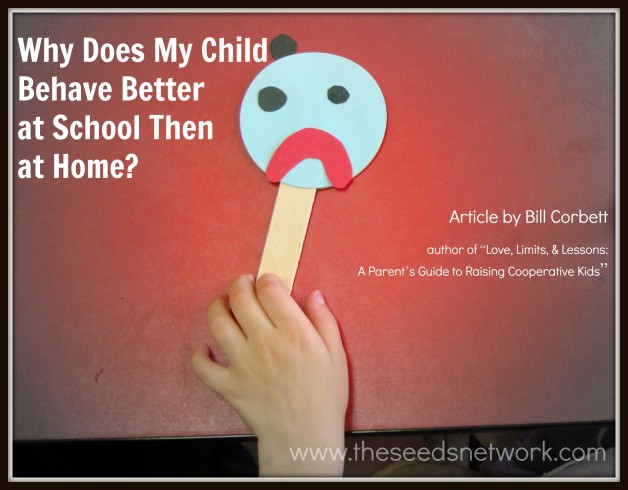Based on helping thousands of parents over the years and spending time evaluating children while they interacted with both parents AND teachers, I’ve found that it is common for children to behave the worst while in the care of Mom! As strange as this may seem, it is true. The reason is that in general terms, the mother seems to create a safe environment in which a child can be him or herself.
For example, a child craving more attention or power, two common internal needs, may be more likely to act out the desire for these unmet needs in her mother’s presence, rather than anyone else’s. The more distant in relationship an adult is to a child, the more likely they may be at gaining a child’s cooperation and attention.
If this theory is true, what can mothers everywhere begin doing to address this frustration? Here are 10 things you’ll want to incorporate quickly that may be similar to what the teachers are doing at school. If you’re doing some of these now, good job and keep them going. If you’re not, make the time to implement them soon.
Limit screen time
Remember the phrase, “All good things in moderation.” Too much screen time can create anxiety in a child if it is not controlled and the parent needs the child’s cooperation.
Conduct family meetings
They don’t have to be long and drawn out, and can even incorporate fun activities. The best thing about family meetings with younger children is that they are usually short.
Speak calmly, quietly and respectfully
Children will often quiet down to hear the adult speak. Be sure that you’re demonstrating the kind of communications that you want him to emulate.
Commanding and demanding don’t work
We no longer live in an autocratic world, so avoid using the parenting methods our parents used. Teach, demonstrate and use cooperation.
Listen quietly when she complains
Shutting a child down who is complaining will only back fire on you. Practice empathic listening with your child and avoid solving her problems for her.
The response to “I’m bored” should be “Wow!”
Boredom is a problem owned by your child, not you. When it occurs, listen at first and be expressive to acknowledge the problem, don’t rescue.
Let tantrums happen
When your child throws a fit in response to a limitation or boundary, let it happen. The fit is his way of venting frustration and also hoping you’ll give in. Don’t cave!
Punishment is not the answer
The use of timeout, taking things away, hitting, or yelling are NOT OK. Nor are they productive in managing behavior effectively and with unconditional love.
Talk less
Talking too much to your children will undoubtedly send them into ‘parent deafness.’ If you feel they’re not listening to you, it might be because you’ve trained them to tune you out.
Visual timers and schedules
Setting the microwave timer to get a child to stop or start an activity does not work. Seek out visual timers and schedules to increase your effectiveness with transitions.
Bill Corbett has a degree in clinical psychology and is the author of the award winning book series “Love, Limits, & Lessons: A Parent’s Guide to Raising Cooperative Kids,” in English and in Spanish. He has three grown children, two grandchildren, three step children, and lives with his family in Enfield, CT. You can visit his Web site www.CooperativeKids.com for further information and parenting advice.



Leave a Reply